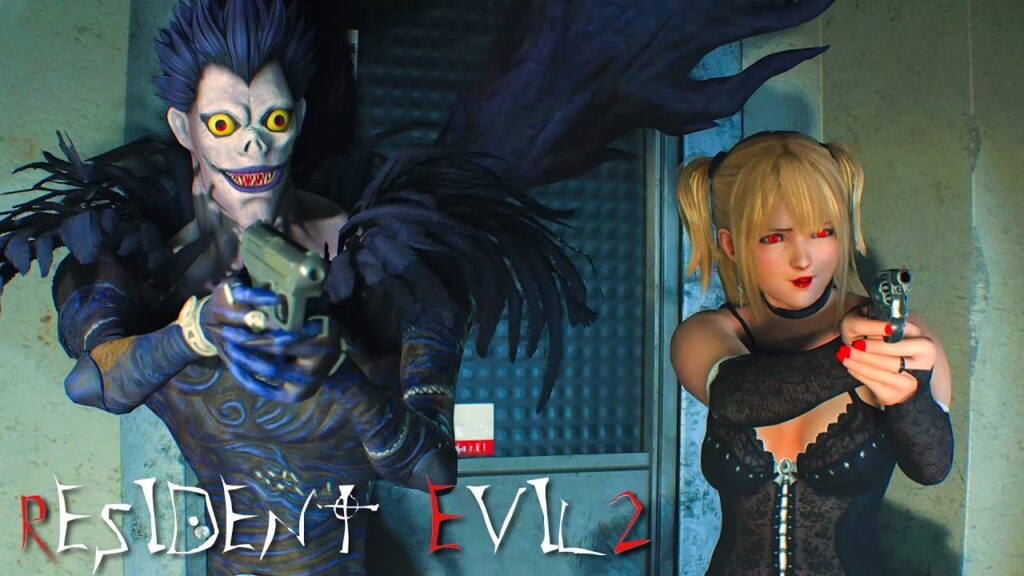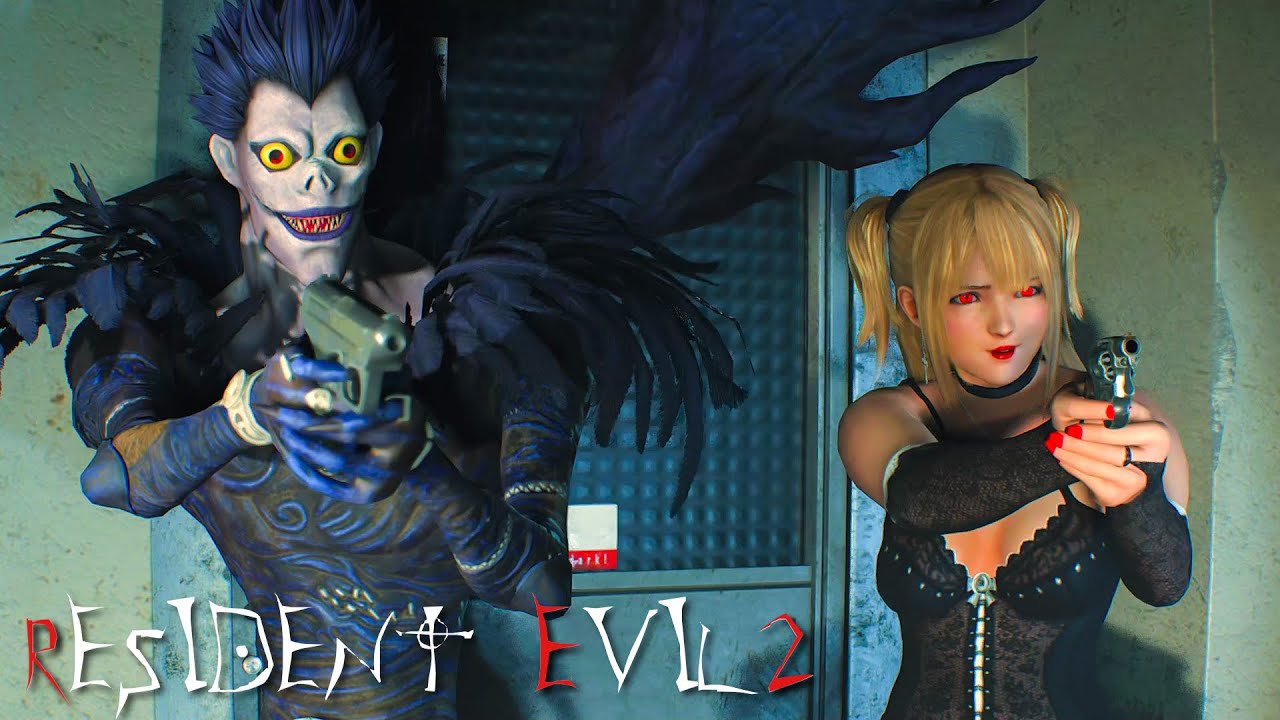
Is Misa Amane Evil? Exploring Morality in Death Note
The anime and manga series Death Note presents a complex exploration of justice, morality, and the consequences of wielding immense power. Among its memorable characters, Misa Amane stands out as a figure of intense devotion and unwavering loyalty to Light Yagami, the protagonist who becomes the mass murderer known as Kira. This article delves into the question: Is Misa Amane evil? By examining her actions, motivations, and the context within the Death Note narrative, we can gain a nuanced understanding of her character and the ethical implications she represents.
Understanding Misa Amane’s Character
Misa Amane is introduced as a popular model and actress who is deeply infatuated with Light Yagami. Her obsession stems from Light’s indirect saving of her life after a criminal murdered her family. Consumed by gratitude and a desire to be with Light, Misa obtains her own Death Note and becomes the Second Kira. This allows her to assist Light in his mission to create a world free of criminals. However, her methods and motivations differ significantly from Light’s calculated approach.
Misa’s Motivations: Love and Gratitude
Unlike Light, who is driven by a god complex and a warped sense of justice, Misa’s primary motivation is her unwavering love and gratitude towards Light. She is willing to do anything for him, including sacrificing her own lifespan by making the Shinigami Eye deal twice. The Shinigami Eyes allow her to see a person’s name and lifespan, making it easier to kill criminals and aid Light. This intense devotion blurs her moral compass, leading her to commit acts that can be considered evil.
The Shinigami Eye Deal and its Consequences
The Shinigami Eye deal is a critical element in understanding Misa’s actions. By halving her lifespan, she gains the ability to identify and eliminate criminals with ease. This power accelerates the killing process but also diminishes her own life. This decision highlights her willingness to sacrifice everything for Light, further illustrating her distorted sense of morality. The ethical implications of shortening one’s life to kill others raise serious questions about the nature of her actions.
Analyzing Misa’s Actions: Good Intentions, Evil Deeds?
To determine whether Misa Amane is evil, it is essential to analyze her actions within the context of the Death Note universe. While she aims to help Light create a better world, her methods are undeniably cruel and morally reprehensible. She actively participates in the killing of criminals and anyone who poses a threat to Light’s plans. This raises the question: Can good intentions justify evil deeds?
The Morality of Killing Criminals
The central premise of Death Note revolves around the morality of killing criminals. Light believes that by eliminating crime, he is creating a utopia. Misa shares this belief, wholeheartedly supporting Light’s actions. However, the act of taking a human life, regardless of the victim’s past, is generally considered morally wrong. Misa’s participation in these killings, driven by her love for Light, places her in a morally ambiguous position.
Sacrificing Innocents for Light’s Goals
One of the most troubling aspects of Misa’s character is her willingness to sacrifice innocent lives for Light’s goals. She does not hesitate to kill anyone who threatens Light’s identity or his mission. This includes law enforcement officers, investigators, and even ordinary citizens who become obstacles. This disregard for innocent life further complicates the question of whether Misa Amane is evil.
Comparing Misa Amane to Other Characters
To gain a broader perspective on Misa’s morality, it is helpful to compare her to other characters in Death Note. Light Yagami, L, and other key figures each possess their own ethical frameworks and motivations. Comparing Misa to these characters can shed light on her unique position within the narrative.
Light Yagami: The God Complex
Light Yagami, the protagonist of Death Note, is driven by a desire to create a world free of crime. However, his methods are ruthless and his ego quickly spirals out of control. He develops a god complex, believing that he is the only one capable of judging and punishing criminals. While Light’s initial intentions may have been noble, his actions become increasingly tyrannical. In comparison, Misa’s actions are driven by love and loyalty, rather than a desire for power. This distinction highlights the different motivations behind their morally questionable choices. [See also: Light Yagami’s Descent into Darkness]
L: The Pursuit of Justice
L, the enigmatic detective, represents a more traditional approach to justice. He believes in due process and the rule of law. L’s methods are often unconventional, but he always strives to uncover the truth without resorting to extrajudicial killings. L’s commitment to justice contrasts sharply with Misa’s willingness to sacrifice innocent lives for Light’s sake. This comparison underscores the ethical differences between pursuing justice through legal means and taking the law into one’s own hands.
The Ethical Ambiguity of Death Note
Death Note is renowned for its exploration of ethical ambiguity. The series challenges viewers to question their own moral compass and consider the complexities of justice. There are no easy answers to the questions posed by the narrative, and the characters often operate in shades of gray. This ambiguity makes it difficult to definitively label Misa Amane is evil or good, as her actions are driven by a complex mix of love, gratitude, and a distorted sense of morality.
The Role of Context in Moral Judgments
The context in which actions occur plays a crucial role in moral judgments. In the Death Note universe, the existence of the Death Note itself introduces a unique moral dilemma. The power to kill anyone simply by writing their name creates a temptation that challenges traditional ethical frameworks. Misa’s actions must be viewed within this context, considering the influence of the Death Note and her intense devotion to Light.
The Subjectivity of Morality
Ultimately, the question of whether Misa Amane is evil is a matter of subjective interpretation. Different viewers may arrive at different conclusions based on their own moral values and perspectives. Some may argue that her actions are justified by her love for Light and her desire to create a better world. Others may condemn her for her willingness to sacrifice innocent lives and her disregard for the rule of law. The lack of a definitive answer is a testament to the series’ ability to provoke thought and challenge conventional notions of right and wrong.
Conclusion: A Complex Moral Landscape
In conclusion, determining whether Misa Amane is evil is not a straightforward task. Her actions are driven by a complex interplay of love, gratitude, and a distorted sense of morality. While her intentions may be rooted in a desire to help Light create a better world, her methods are often cruel and morally reprehensible. Comparing her to other characters in Death Note, such as Light and L, provides further insight into her unique position within the narrative. Ultimately, the question of whether Misa Amane is evil remains a matter of subjective interpretation, reflecting the ethical ambiguity that defines the Death Note universe.
The series excels at presenting a complex moral landscape, and Misa is a key figure in illustrating its nuances. Her unwavering devotion to Light, coupled with her willingness to commit morally questionable acts, makes her a compelling and controversial character. Whether one views her as evil, misguided, or simply a product of her circumstances, Misa Amane’s character serves as a reminder of the complexities of morality and the challenges of judging others in a world where right and wrong are often blurred.
Considering all factors, while Misa Amane is complicit in evil acts, the question of whether she herself is evil is a complex one. Her motivations, while warped, stem from love and gratitude, setting her apart from Light’s god complex. This makes her morality a fascinating point of debate for fans of the series.
The debate surrounding whether Misa Amane is evil continues among fans, highlighting the character’s lasting impact and the show’s effective exploration of moral ambiguity. Her actions are undeniably wrong, but her motivations and the circumstances surrounding them make a definitive judgment difficult. Perhaps the most accurate assessment is that Misa Amane is a flawed character whose actions contribute to the overall darkness of Death Note, but whose own inherent nature is more complicated than a simple label of “evil” would suggest.
Ultimately, the question of “Is Misa Amane evil?” is best left to the individual viewer to decide. The character’s complexities and the show’s moral ambiguity allow for a wide range of interpretations, making her one of the most fascinating and debated figures in the Death Note universe. Exploring her actions and motivations provides a valuable lens through which to examine the broader themes of justice, morality, and the consequences of wielding immense power.

